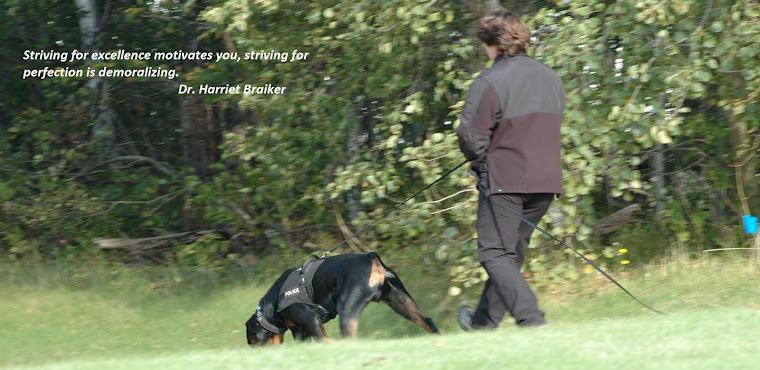The more I train the less I am convinced that slow becomes fast. I think in more exercises fast rehearsal results in fast performance. I have been teaching Jill to do the AKC Novice Obedience recall exercise. In it she has to hold her stay, trot across the ring and sit in front of me. Sounds simple right? Not if you are stuck with a handler who insists on going all experimental on her! LOL. I will spare you the tedium of the training process, it takes so much longer to write out than to actual do. Basically I created a heavy "reinforcement zone" in front position without her moving anywhere. I then took a tiny step back and rewarded her for her efforts to seek out the RZ. She got no information from me other than praise and treats in the RZ. Because I establish the RZ before the exercise, the motivation to get there was well established, resulting in a rather "brisk" pace. Similar to our drug dogs - the reward process is established (we pick dogs who are highly reinforced for fight with the ball) before the exercise. We then show them how to get the reward. If the dog does not know that the reward zone is there, why should they hurry to get there? And then when they do know it is there and have a habit of going there slowly, why start hurrying?
Disclaimer: I am sure I stole the term "reinforcement zone" from someone but I have no idea who.....
 |
| Calix says "you wanna recall? I'll give you a recall!!" "Umm, Calix, you have to stop when you get here....." |

No comments:
Post a Comment